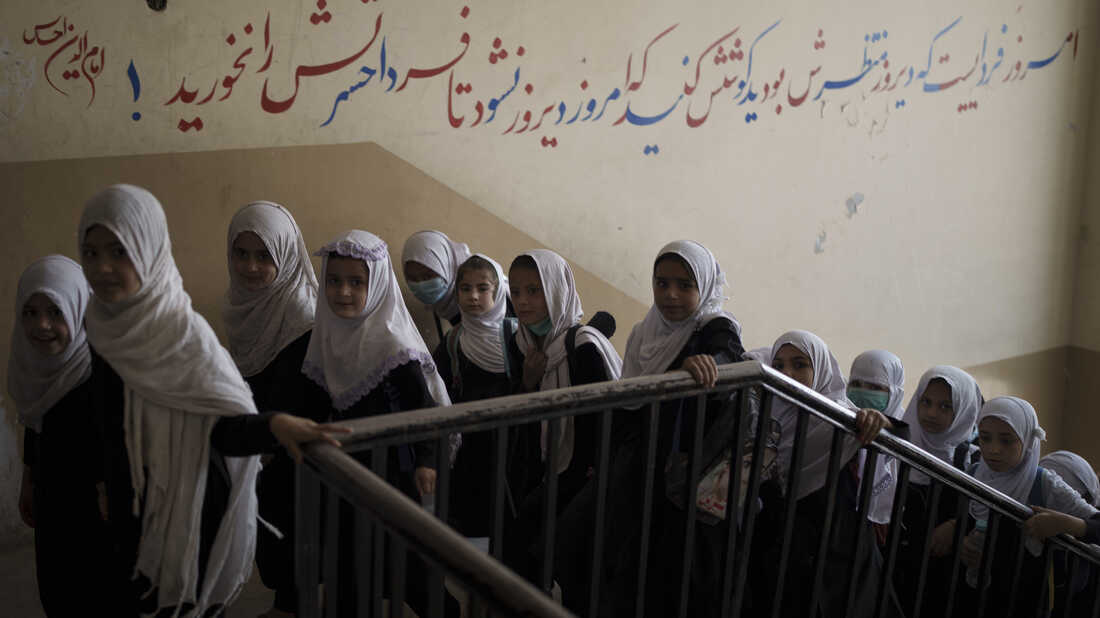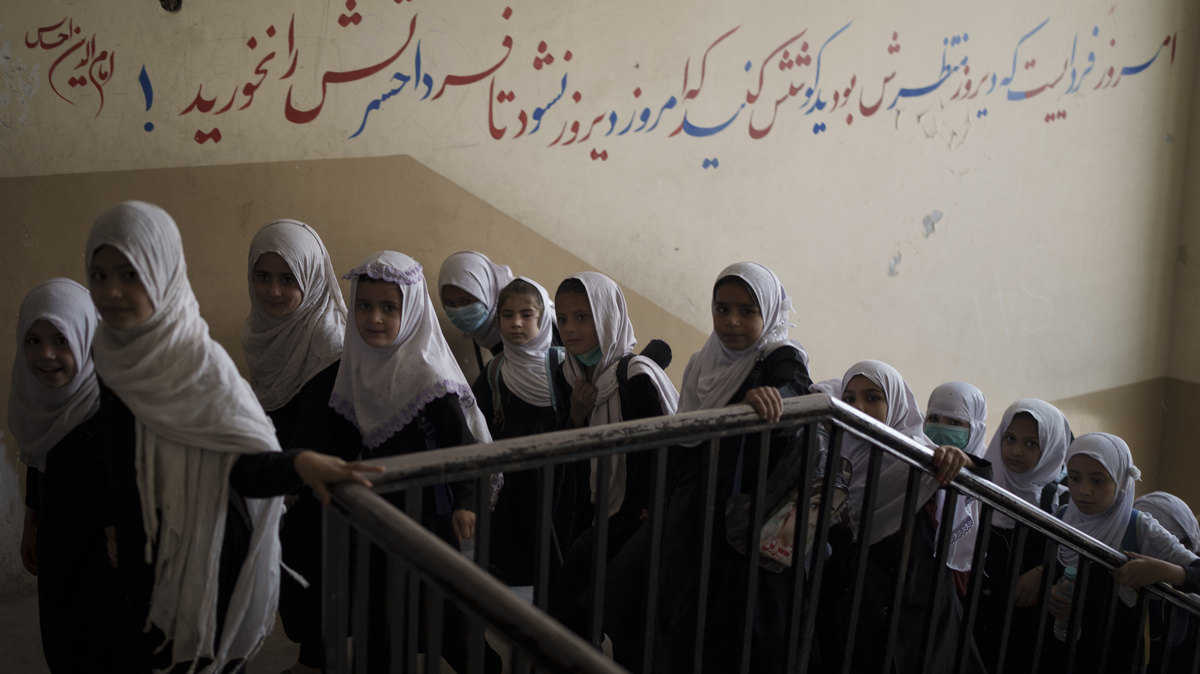
Girls walk upstairs as they enter a school before class in Kabul, Afghanistan on Sept. 12, 2021. Since then, the Taliban has decided against opening educational institutions to girls beyond grade six. Felipe Dana/AP hide caption

Girls walk upstairs as they enter a school before class in Kabul, Afghanistan on Sept. 12, 2021. Since then, the Taliban has decided against opening educational institutions to girls beyond grade six.
Felipe Dana/APAfter taking control of Afghanistan last summer, the Taliban made promises for more inclusive and less repressive leadership in Afghanistan. Many of those promises involved maintaining women's rights.
But now, education for girls has become more limited, and other restrictions have been placed on women. NPR's Diaa Hadid reports on what the uneven implementation of those policies suggests about Taliban leadership.
And Kathy Gannon of The Associated Pressreports on how the Taliban backtracking on some of its promises bodes for Afghanistan's future.
Additional reporting in this episode also comes from NPR's Fatma Tanis.
Email us at
This episode was produced by Jonaki Mehta, Mia Venkat, Claudette Lindsay-Habermann and Jeevika Verma. It was edited by Ashley Brown, Scott Neuman and Courtney Dorning. Our executive producer is Cara Tallo.

 Live Radio
Live Radio